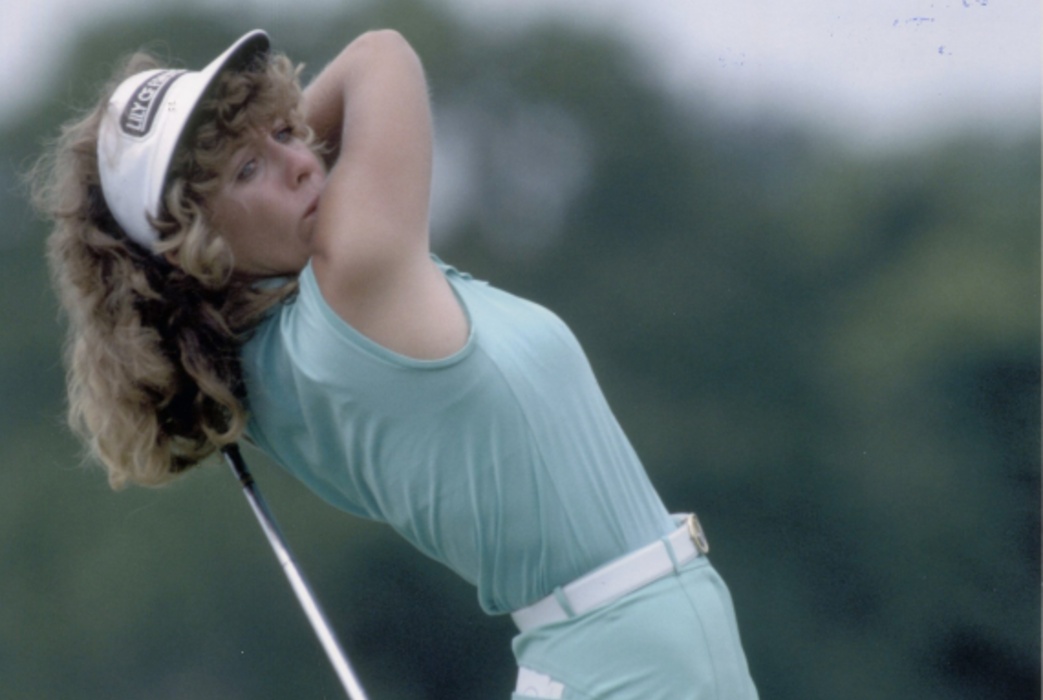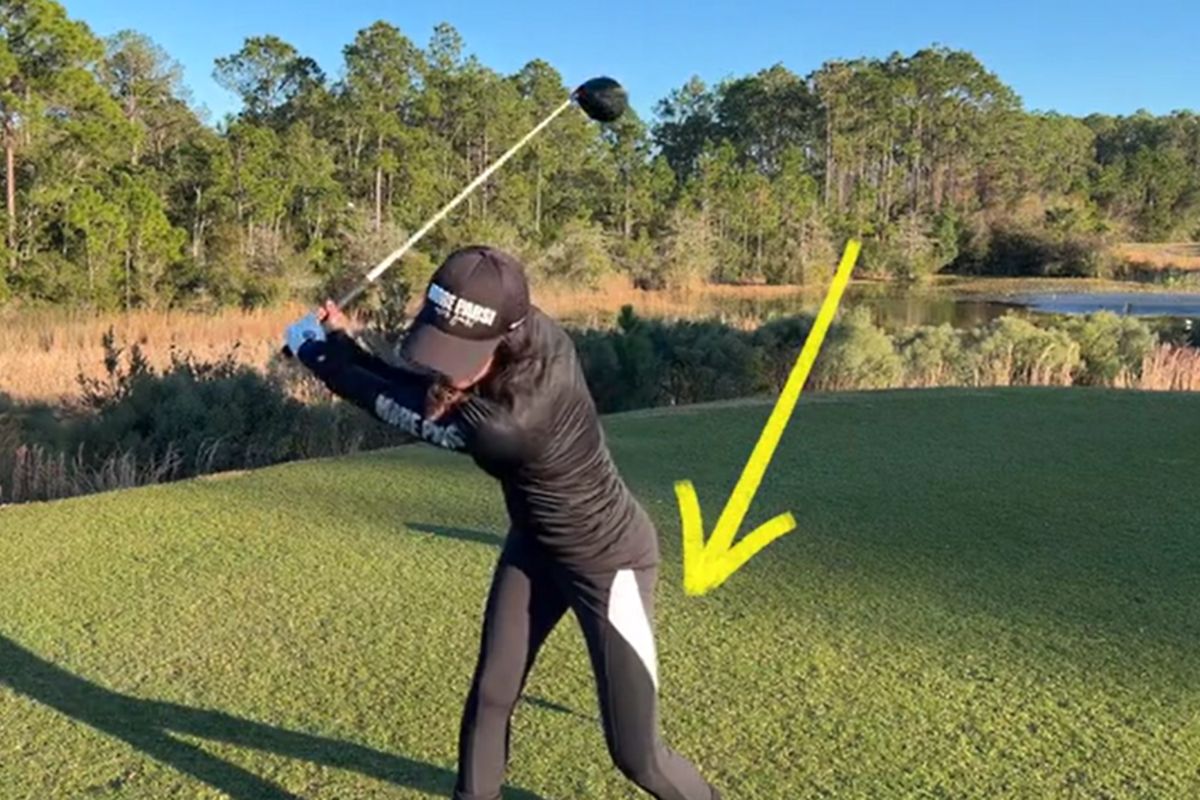Jan Stephenson, at last, holds a unique place in the history of women’s golf. Overlooked and underestimated as a competitor, often because of her notoriety off the golf course, Stephenson, at last, takes her place this year in the World Golf Hall of Fame. It is an overdue honor for the Australian, who is one of the last great golfers from one of the LPGA’s greatest generations to earn this career recognition.
Among her contemporaries — who include Hall of Famers such as Amy Alcott, Pat Bradley, JoAnne Carner, Beth Daniel, Betsy King, Nancy Lopez, and Hollis Stacy — Stephenson accomplished something none of them were able to do during the course of their careers. In fact, Jan Stephenson became the first LPGA golfer to accomplish this since Kathy Whitworth from 1965-1967: capture at least one Major Championship in three consecutive years.
Patty Sheehan would be the next golfer to pull of this feat from 1992-1994, and others have since duplicated or matched the feat over the last two decades. During the 1980s, however, only Stephenson could lay claim this accomplishment and she did it in a stretch when the LPGA only contested three Major Championships per year.
Her run of success began with the 1981 Peter Jackson Classic held at the Summerlea Golf & Country Club in Quebec. To that point in her career, Stephenson had won four events on the LPGA Tour and earned the 1974 LPGA Rookie of the Year award, but had yet to truly break through, as only two of her victories had come since 1976.
The tournament came down to the final hole and proved to be a strong test of her fortitude. On the 72nd hole, Stephenson needed a birdie to avoid a playoff with Pat Bradley and Nancy Lopez, who had rallied from five shots back to set up the dramatic showdown. With her father, Frank, on her bag, Stephenson had to decide whether to lay up on the par-5 hole or go for the green in two shots. Her father talked her out of the aggressive approach, and it paid off, as Stephenson’s wedge shot left her with a 12-foot putt for birdie. Stephenson fell to her knees in celebration as the ball hit the hole, at last able to claim the first Major Championship title of her career.
She still needed to prove to the rest of the golf world, and herself, that this victory was more than just a fluke. That meant winning a second Major Championship. Her next opportunity would come during the first Major of 1982, the LPGA Championship held in June (the Nabisco Dinah Shore would not be designated a Major Championship until 1983). In a year filled with personal adversity and a messy legal struggle with her husband, Stephenson put it aside for one weekend at the Jack Nicklaus Golf Center just outside Cincinnati, Ohio.
Prior to the tournament, Stephenson even felt concern over the state of her short game, remarking, “I’ve been spending so much time with lawyers that I don’t have time to practice.”
Incredibly, Stephenson led the tournament wire-to-wire, opening with back-to-back scores of 69 and held a one-stroke lead over Beth Daniel heading into the weekend. Stephenson extended her lead to two strokes on Saturday on the strength of 13 birdies through three rounds. When Daniel fell apart with bogeys on four consecutive holes Sunday on the back nine, Stephenson cruised to the finish line with a 71, good enough for a two-stroke victory over JoAnne Carner, who had made it interesting by rallying from four shots behind. A second Major Championship to her credit gave Stephenson a much-needed sense of validation and respect that she desired.

Drama followed Stephenson one more time to the 1983 U.S. Women’s Open in Tulsa, but for reasons completely out of her control. While in Chicago prior to the tournament, her clubs were in the trunk of her friend’s car when the car was stolen from outside his home. In need of a set on short notice, she ended up borrowing his set of clubs with the intention of replacing them before the start of play. This ended up not happening, and despite the stiffness of the irons, she managed to thrive on the brutal tight and long conditions of the Cedar Ridge Country Club, which ended up playing to her advantage.
“I couldn’t make the irons go anywhere but straight and long because they were so stiff,” Stephenson says. “I just took one more club length every time. I led in greens hit the first three days by a lot, and had these irons I couldn’t bend, and could never even compress the ball with them which was pretty funny.”
With other equipment deals at the time, Stephenson kept the story of her borrowed Wilson clubs as quiet as possible. The real story for her that week was winning a U.S. Women’s Open with her parents in attendance.
One morning as a child, Stephenson wanted to stay in bed rather than practice. Her father told her that “If you get up now and go practice, one day you might win the U.S. Open.” The family cried together at the memory of that moment, savoring the greatest win of her career, a one-stroke victory in the blazing triple-digit Oklahoma heat over JoAnne Carner and Patty Sheehan.
“I haven’t really made it a secret how much the Open meant to me,” Stephenson said. “It meant everything.”
Stephenson’s win at the U.S. Women’s Open capped the best three-year stretch of her career. Behind the glamorous image, Stephenson was at her core as fierce a competitor as any of her peers, a side of her which unfortunately tended to get pushed to the background.
“She was never, even in her prime, given credit for how good a player she was,” says Golf Channel analyst Jaime Diaz. “She was looked at as the ‘Glamour Girl’ who was taking a shortcut to fame, when in fact, she was a grinder who dug it out of the dirt as much as anybody. She was a skilled player, dogged competitor, and hard worker who was always evaluated according to her image. She wasn’t celebrated for how good she was, and I think it hurt her.”
Stephenson’s induction, after years of uncertainty, waiting, and yes, pain, at long-last provides vindication for a job well done.
“I had been passed over so many times that it means even more now,” Stephenson says, “because I didn’t think it was ever going to happen.”






